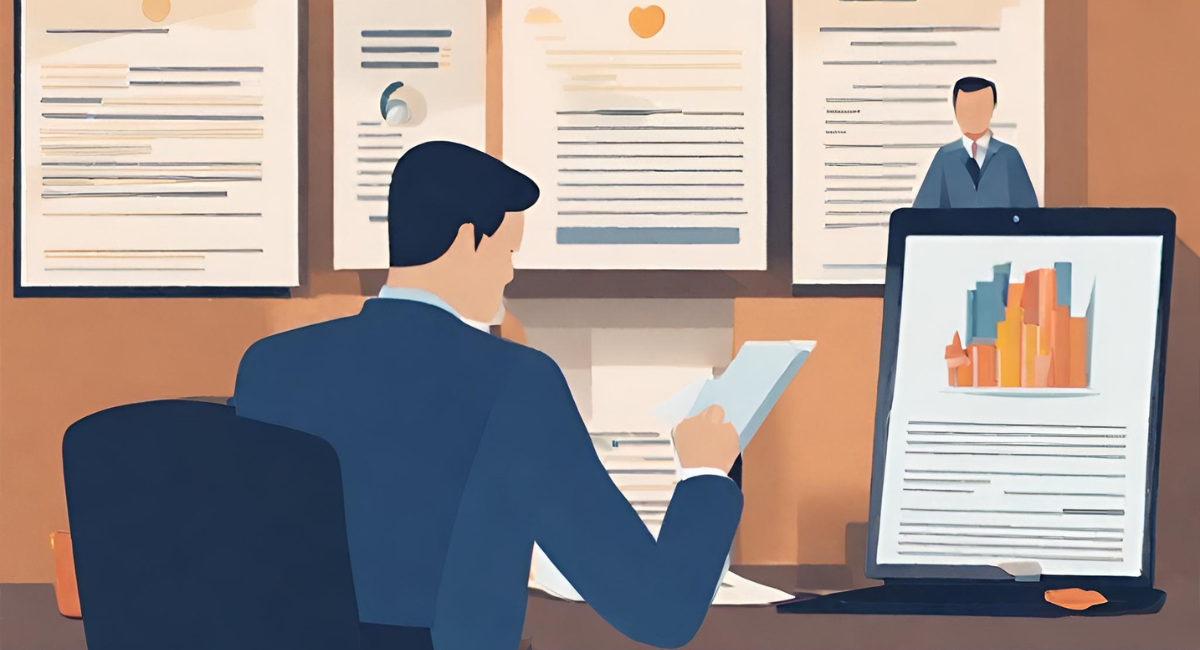Privacy and data lawyers are specialized legal professionals who advise clients on privacy, data protection, and cybersecurity matters. They help businesses comply with relevant data protection laws and regulations, manage risks associated with data breaches, and establish guidelines for safeguarding sensitive information.
Privacy and data lawyers play a crucial role in today’s digital world, where data drives many businesses. Their expertise lies in navigating the complex legal landscape surrounding privacy and data protection and helping companies comply with relevant regulations. I will explore the responsibilities of privacy and data lawyers, their important role in business, and the future of privacy and data law.
Understanding the Role of Privacy and Data Lawyers
Privacy and data lawyers advise clients on privacy, data protection, and cybersecurity matters. They ensure that businesses, big and small, comply with laws and regulations governing how they collect, store, use, and share data.
Key Responsibilities of Privacy and Data Lawyers
Privacy and data lawyers have a wide range of responsibilities, including:
- Advising clients on privacy and data protection laws and regulations applicable to their industry;
- Assessing privacy risks and developing compliance strategies;
- Reviewing privacy policies and data protection agreements;
- Handling data breach incidents and assisting in risk management;
- Representing clients in privacy-related legal disputes;
- Monitoring and staying updated on emerging privacy and data protection trends.
Specializations within Privacy and Data Law
Privacy and data law is a vast field, and lawyers may specialize in different areas, such as:
- Healthcare Privacy Law: Lawyers specializing in healthcare privacy work closely with healthcare providers and establishments to ensure compliance with patient data protection regulations, such as the Health Insurance Portability and Accountability Act (HIPAA).
- Technology and Digital Privacy Law: Lawyers specializing in technology and digital privacy focus on the legal issues surrounding emerging technologies, data-sharing practices, online advertising, and e-commerce.
- International Data Protection Law: With the globalization of businesses, lawyers specializing in international data protection law assist multinational corporations in managing data transfers, compliance with the General Data Protection Regulation (GDPR), and other privacy laws.
Healthcare privacy law is a critical area of specialization within privacy and data law. Lawyers in this area work closely with healthcare providers and organizations to ensure compliance with patient data protection rules, such as the Health Insurance Portability and Accountability Act (HIPAA). They help healthcare entities navigate the complex landscape of privacy laws and regulations, ensuring patient information is handled securely and confidentially. These lawyers advise on data collection, storage, and sharing and implementing privacy policies and procedures.
Technology and digital privacy law is another important specialization within the field. Lawyers in this area deal with the legal issues surrounding emerging technologies, data-sharing practices, online advertising, and e-commerce. They help businesses understand and comply with the laws and rules that govern the collection, use, and protection of digital data. These lawyers are crucial in advising companies on best practices for data security, privacy policies, and compliance with industry-specific regulations. They also assist in addressing legal challenges related to data breaches, cyberattacks and protecting intellectual property in the digital realm.
With the increasing globalization of businesses, lawyers specializing in international data protection law have become indispensable. These lawyers assist multinational corporations in managing data transfers across borders, ensuring compliance with the General Data Protection Regulation (GDPR) and other privacy laws. They help businesses navigate the complex web of international privacy regulations, advising on issues such as cross-border data transfers, data localization requirements, and the establishment of data protection frameworks. These lawyers play a vital role in helping companies maintain a global presence while safeguarding the privacy rights of individuals.
The Intersection of Law, Privacy, and Technology
Rapid technological advancements have raised new challenges and concerns in privacy and data law. Privacy and data lawyers must navigate this digital landscape while addressing the legal implications of technological innovation, such as AI, IoT, and big data.
Navigating the Digital Landscape
One of the crucial tasks for privacy and data lawyers is to keep up with the evolving digital landscape. They must understand how new technologies impact privacy, data security, and businesses’ legal obligations.
As technology advances at an unprecedented pace, privacy and data lawyers find themselves at the forefront of addressing the legal and ethical implications that arise. They must stay updated with the newest technological developments and analyze their potential impact on privacy rights and data protection laws.
For instance, the rise of artificial intelligence (AI) has introduced complex legal questions surrounding the use of personal data. Privacy and data lawyers must grapple with issues such as the ethical use of AI algorithms, the potential for bias in decision-making processes, and the need for transparency in AI-driven systems.
Similarly, the Internet of Things (IoT) presents unique privacy and data security challenges. With an increasing number of interconnected devices collecting and transmitting vast amounts of personal data, privacy, and data lawyers must protect individuals’ privacy rights. They must also advise businesses on implementing robust security measures to safeguard against potential breaches and unauthorized access.
Addressing Cybersecurity Concerns
Cybersecurity is a pressing issue in today’s interconnected world. Privacy and data lawyers work on developing comprehensive cybersecurity strategies, ensuring that companies have safeguards in place to protect data from unauthorized access and breaches.
With the ever-growing threat of cyberattacks, privacy and data lawyers play a critical role in helping businesses mitigate risks and respond effectively to security incidents. They assist in drafting and implementing data breach response plans, conducting privacy impact assessments, and advising on regulatory compliance related to cybersecurity.
Moreover, privacy and data lawyers collaborate with IT professionals and cybersecurity experts to stay ahead of emerging threats and develop proactive measures to safeguard sensitive information. They analyze the legal implications of different cybersecurity frameworks and standards, ensuring businesses adhere to industry best practices and legal requirements.
Furthermore, privacy and data lawyers work closely with government agencies and regulatory bodies to shape cybersecurity policies and regulations. They advocate for stronger legal frameworks that promote data protection, privacy rights, and accountability in the digital age.
In conclusion, the intersection of law, privacy, and technology is complex and rapidly evolving. Privacy and data lawyers must continuously adapt to new technological advancements, address cybersecurity concerns, and advocate for robust legal frameworks that protect individuals‘ privacy rights and data security.
Legal Frameworks and Regulations in Data Privacy
Various legal frameworks and regulations around the world govern data privacy. Privacy and data lawyers help companies understand and comply with these rules to avoid penalties and reputational damage.
Regarding data privacy, different countries have specific laws regulating the collection, storage, and use of personal data. Privacy and data lawyers guide businesses to these domestic data protection laws. For instance, in the United States, the California Consumer Privacy Act (CCPA) sets forth strict requirements for businesses operating in California, while in Canada, the Personal Info Protection and Electronic Documents Act (PIPEDA) governs the handling of personal information.
However, data privacy is not limited to domestic regulations alone. In an increasingly interconnected world, international data privacy standards have become essential. The General Data Protection Regulation (GDPR) is one such global standard that sets guidelines for processing personal data. Privacy and data lawyers assist companies in ensuring compliance with the GDPR, which applies to any association that handles the personal data of individuals within the European Union.
Complying with international data privacy standards can be particularly challenging for cross-border data transfers and international operations businesses. Privacy and data lawyers provide valuable guidance in navigating the complexities associated with these activities. They help companies develop strategies to protect personal data while ensuring compliance with the relevant regulations in each jurisdiction.
Moreover, privacy and data lawyers also play a crucial role in mitigating the risks related with data breaches and cyberattacks. They assist companies in developing robust data protection policies and incident response plans, ensuring that businesses are well-prepared to handle any potential data security incidents.
In summary, the legal frameworks and regulations surrounding data privacy are vast and complex. Privacy and data lawyers serve as trusted advisors, helping businesses understand and comply with these regulations to protect personal data, avoid penalties, and maintain a positive reputation in an increasingly privacy-conscious world.
The Importance of Privacy and Data Lawyers in Business

In an era where data has become a valuable asset, privacy, and data lawyers play a critical role in protecting businesses from legal and reputational risks.
Ensuring Compliance in Companies
Privacy and data lawyers help companies establish privacy compliance programs and guidelines to ensure that all data practices align with applicable regulations. Their expertise enables businesses to avoid costly fines and legal consequences.
Risk Management and Data Breaches
Mitigating the risks associated with data breaches is a top priority for privacy and data lawyers. They work closely with companies to develop data breach response plans, including incident management procedures and notification processes, to minimize the impact on individuals and the organization.
The Future of Privacy and Data Law
The privacy and data law field continues to evolve as new technologies and societal concerns emerge. Privacy and data lawyers must adapt to these changes to protect privacy rights while facilitating innovation and business growth.
Emerging Trends in Data Privacy
As technology advances, new challenges arise in data privacy. Privacy and data lawyers are at the forefront of addressing emerging trends, such as artificial intelligence and machine learning algorithms, facial recognition technology, and the ethical considerations surrounding data analytics.
The Impact of Technological Advancements on Privacy Law
Technological advancements continually reshape privacy law. Privacy and data lawyers help shape policies and advocate for legal frameworks that balance protecting individuals’ privacy rights and fostering innovation.
Key Takeaways
- Privacy and data lawyers provide expert guidance on complex legal matters related to data protection, cybersecurity, and privacy.
- Their role is critical in ensuring businesses of all sizes comply with constantly evolving data protection laws and regulations.
- They assist businesses in risk management, especially in the face of potential data breaches and cyberattacks.
- As technology advances, privacy and data lawyers remain at the forefront of addressing new challenges, ensuring a balance between innovation and individual privacy rights.
- Beyond compliance, these lawyers are vital in shaping future data privacy policies ensuring a safer digital ecosystem.
FAQs
What are the primary responsibilities of privacy and data lawyers?
Their responsibilities include advising on privacy laws, assessing risks, reviewing privacy policies, handling data breaches, and representing clients in legal disputes related to data privacy.
How do privacy lawyers help businesses with international operations?
They guide businesses in adhering to international data privacy standards, such as GDPR, ensuring cross-border data transfers and operations compliance.
Why are privacy and data lawyers crucial for businesses in today’s digital world?
Given the increasing value of data and the potential legal and reputational risks of data breaches, these lawyers help businesses navigate complex regulations, ensuring they protect user data and avoid costly penalties.
How do privacy and data lawyers respond to technological advancements like AI and IoT?
They address emerging legal and ethical issues related to these advancements, advocating for policies that balance individual privacy rights with technological innovation.
What role do privacy and data lawyers play in the event of a data breach?
They assist companies in developing data breach response plans, manage incident procedures, and help minimize the impact on individuals and the organization.
Conclusion
In conclusion, privacy and data lawyers are vital in helping businesses navigate the compound legal landscape surrounding data protection and privacy. Their expertise enables companies to comply with regulations, manage risks, and safeguard valuable data. As technology evolves, privacy and data lawyers will remain at the forefront of addressing emerging challenges and shaping the future of privacy law.
